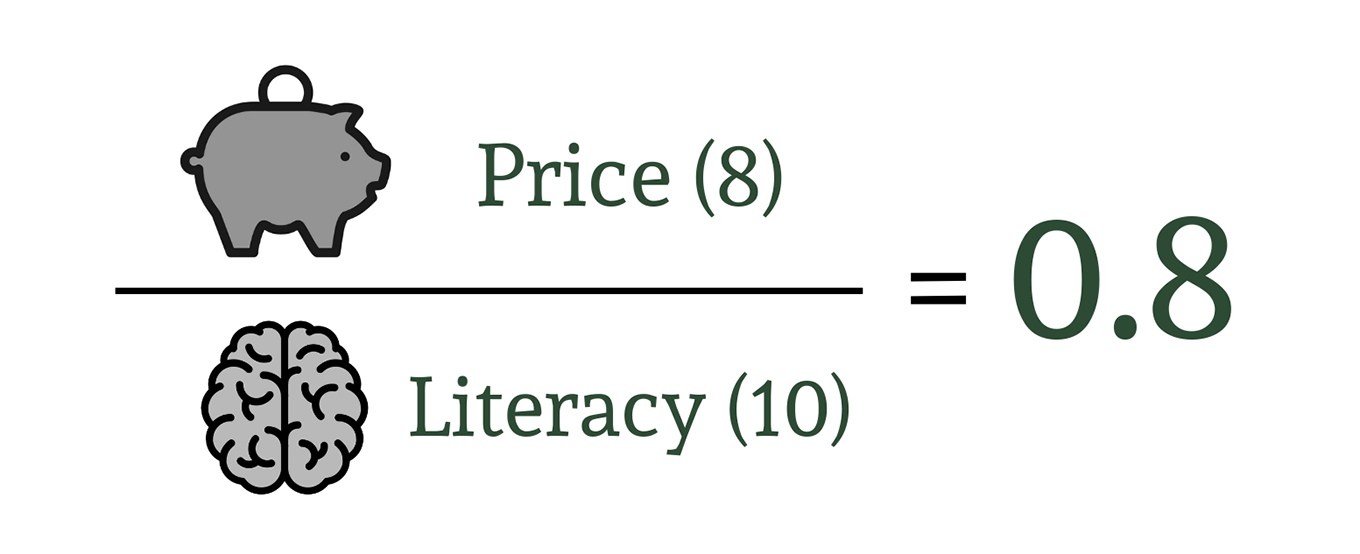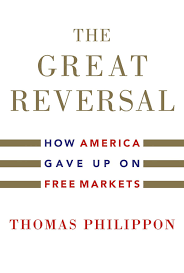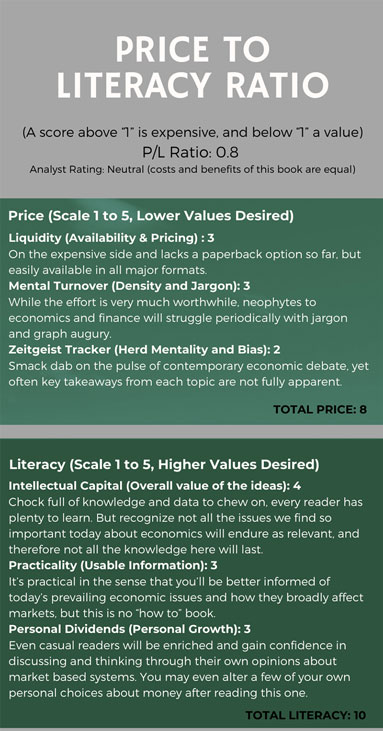Personal Wealth Management / Book Reviews
The Great Reversal
Offering a superlative crash course in the debates of the day, Thomas Philippon has written one of the better economics books for wide readership in a while.
The Great Reversal is an often bravura performance of a book with the kind of elbow grease seldom seen today—delivering a wide readership something truly useful. (Incidentally, Philippon, a professor of finance at New York University’s Stern School of Business, is a colleague of our recent Well Read Investor guest Aswath Damodaran.)
Read The Great Reversal carefully and you’ll have more or less taken a graduate level economics seminar. That fact, however, also means you have to put up with extensive explanation, jargon and statistics. Yet while the book is dense, it isn’t overly long, teaches rather than preaches, and includes many features—such as a terrific glossary—that make the going easier.
The title, The Great Reversal, feels a bit strange. It doesn’t describe the work very well. It’s as if editors asked Philippon to gussy it up to spark intrigue, agreement, outrage—you know, all that stuff media does. Yet, this analyst wonders if the title may have put off potential readers thinking this to be an ideological screed. But readers from any point of view will find much to chew on.

It’s a true “why” book—why is healthcare so expensive? Why do bankers still make so much money? What effect does political lobbying have on economic outcomes? And so on. Each section takes on a topic in the contemporary zeitgeist—what economists and politicians are talking about.
Philippon concludes with a poignant, if broad, summation: Free markets are fragile things—rare, and hugely beneficial to society. We should steward them well. But markets have warts, too, and lately there are legitimate criticisms worth considering.
In this analyst’s experience, markets really do create discipline in pricing and innovation, even in today’s tech titan dominated world. Data still bears this out, mostly. The mere fact of concentrated market power doesn’t necessarily mean over-weaning, market-cornering monopolies are a plague. Folks like Cook, Bezos and Zuckerman are generally and perpetually terrified of competition because they know their businesses can be significantly impaired—and lightning quick—if they’re not well on top of the next big trend or tech breakthrough. That’s one reason they move so swiftly to gobble up competitors. They hear footsteps. Success in that realm breeds paranoia of being crushed.
But Philippon keenly notes that, whichever way you view that, what we talk about today as “market-based” and “competitive” are often highly regulated and distorted things to begin with. Certainly that’s true now, and certainly it could use some clean up.
Philippon would like to see even more competition, and he ultimately supports regulation if necessary to get it. There is little doubt private companies will try to concentrate power to ensure their success and survival. But let us remember the lessons from a hundred plus years of real market action: Today’s titans, even with seeming unassailable market power, will falter. Stalwarts like GE and IBM, once believed to be unequivocal powerhouses for all time, eventually succumb. Remember when Exxon was the largest market cap stock in the world? Nary a decade ago; that time is well past. There will come a day when even the Amazons and Apples of the world are also-rans. That process will have less to do with regulation and more to do with the natural market forces Philippon champions.
Contemporary views about the odds, ends and ills of our economic system are often wrong in hindsight because the global economy adapts and shifts faster than our ability to understand it. As such, economics is often more like a discipline of observation versus prognostication. The way we understand our economy will evolve, too. But The Great Reversal stands tall as a guide about the big and broad economic issues of this particular moment.

Where Might the Market Go Next?
Confidently tackle the market’s ups and downs with independent research and analysis that tells you where we think stocks are headed—and why.







